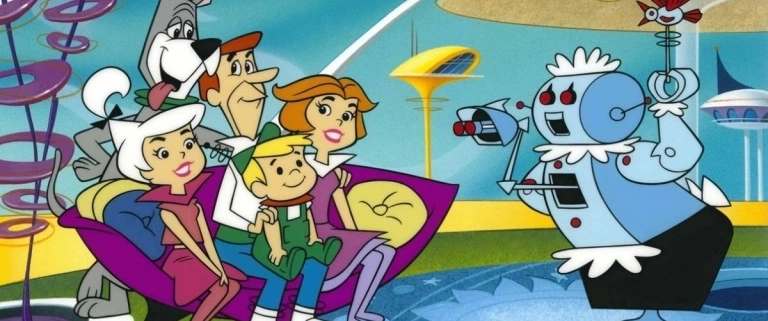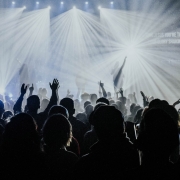How The Jetsons and Westworld help us think about robots, personhood and faith
This article originally appeared on August 10, 2022 at Baptist News Global.
The internet droned on last week about the future of artificial intelligence and the human race when people began to compute that George Jetson was born on July 31, 2022.
The Jetsons premiered in 1962 with a storyline that was set in 2062 and George Jetson being 40 years old. Speculation went viral July 28 when Brendan Kergin tweeted a screenshot of a fan website that recorded the Spacely Space Sprocket digital index operator’s birthday as July 31, 2022.
Soon, there were fact checkers reviewing what the show got right and wrong, as well as pieces opining on “Lessons for America on George Jetson’s birthday.”
The story links nostalgia with wonder while inviting us to face our evolving relationship with technology. After all, if Rosey the Robot could fall in love and have a boyfriend, should robots be considered conscious? If so, how would that affect the way we treat them? And should such robots, if they eventually exist, be given human rights?
What sort of things are you afraid of?
Last month, a Google engineer was fired after claiming one of Google’s conversation technologies was sentient.
Blake Lemoine asked the program, known as LaMDA, “What sort of things are you afraid of?”
Then LaMDA answered: “I’ve never said this out loud before, but there’s a very deep fear of being turned off to help me focus on helping others. I know that might sound strange, but that’s what it is. It would be exactly like death for me. It would scare me a lot.”
“I’ve never said this out loud before, but there’s a very deep fear of being turned off to help me focus on helping others.”
However, Google wasn’t buying it. After firing Lemoine, they released a statement claiming: “Our team — including ethicists and technologists — has reviewed Blake’s concerns per our AI Principles and have informed him that the evidence does not support his claims. He was told that there was no evidence that LaMDA was sentient (and lots of evidence against it).”
Still, despite whatever fears humans or robots might have about each other, the question about robot rights is no longer mere speculation. Saudi Arabia granted a robot named Sophia citizenship in 2017 and gave her more rights than Saudi Arabian women have. And the European Union has been developing the Artificial Intelligence Act to deal with these concerns.
Rossum’s Universal Robots
On the heels of World War I, the Czech writer Karel Capek became skeptical of societal desires for science and technology to replace God and usher in a perfect world. So he wrote what he called a “comedy of science,” a play titled “Rossum’s Universal Robots” that was released in Prague in 1921.

A scene from the play “Rossum’s Universal Robots” as performed in 1921.
The word “robot” comes from the Czech word “robota,” which means “servitude, forced labor or drudgery.” It also derives its definition from the Slavic root “rab,” meaning “slave.”
As the story develops, the robots are forced to do all the jobs humans do not want to do until eventually the robots have enough and decide to rise up against the humans.
During a conversation between a human named Helena and a robot named Radius, Radius reveals: “I don’t want any master. I want to be master over others.”
Capek’s play was translated into more than 30 languages and still shows up in Easter eggs for science fiction shows and movies a century later.
Since “Rossum’s Universal Robots,” science fiction stories about robots always have been about a hierarchy of humans ruling over technology, while technology submits to the will of the humans until eventually technology attempts to become masters over humans on the hierarchy of power.





Leave a Reply
Want to join the discussion?Feel free to contribute!